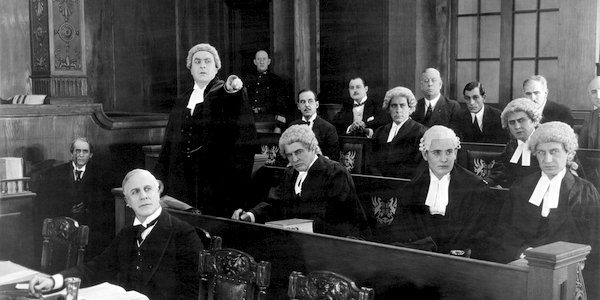I’M NOT a lawyer. I have many bad points but that isn’t one of them. I know some lawyers who are actually quite nice, but I share the opinion of Charles Dickens, expressed in Bleak House, that the one great principle of English law is to make business for itself. The claims of impartiality the legal profession makes for itself are rightly worthy of derision; they’re no more honest and impartial than anyone else.
Thus the highfalutin open letter from 600 assorted lawyers calling for sanctions against Israel merely confirms another profession in thrall to sacred bien pensant metropolitan notions. One could safely dismiss this as the usual suspects being given prominence by the mainstream left-wing outlets such as the Guardian and the BBC. But since among the signatories to this letter are some good eggs, such as Lord Sumption, who were prominent in challenging the Government’s oppressive covid restrictions, it’s worth taking the time to point out this missive’s flaws.
The lawyers’ letter begins by claiming that the provisional order of the International Court of Justice (ICJ) dated January 26 2024, ‘concluded that there was a plausible risk of genocide in Gaza’. Except that’s not exactly what the ICJ concluded and as the signatories to the letter will know, words and their precise definition matter in such cases. In its judgment the ICJ stated that ‘the facts and circumstances . . . are sufficient to conclude that at least some of the rights claimed by South Africa and for which it is seeking protection are plausible’. The ICJ did not set out which of the claims made by South Africa it deems to be plausible and which were not. This was not a conclusion: ‘plausible’ is a not a verdict, merely a justification for undertaking a more detailed investigation.
The ICJ also stated that ‘at the present stage of the proceedings, the Court is not required to ascertain whether any violations of Israel’s obligations under the Genocide Convention have occurred’. So Israel has not been found guilty of anything, nor is there any presumption in the ICJ’s judgement that it should be considered guilty of any breach of the Genocide Convention. Yet in their 17-page letter, m’learned friends don’t find the space to mention this.
The ICJ did call on Israel not to break the Genocide Convention and to ensure that humanitarian aid was delivered to Palestinians in the war zone. In an updated judgment issued on March 28, the ICJ notes the deteriorating humanitarian situation in Gaza and calls on Israel to facilitate the ‘unhindered provision at scale by all concerned of urgently needed basic services and humanitarian assistance . . . to Palestinians throughout Gaza, including by increasing the capacity and number of land crossing points and maintaining them open for as long as necessary’. The ICJ did not pass comment on who has caused this humanitarian situation; they did not assess that Israel is blocking aid routes; they did not state that Israel had failed to abide by the ICJ’s previous demands and neither did they call for an immediate ceasefire.
But the lawyers have decided who is to blame, and obviously it’s Israel. They call for ‘an immediate and permanent ceasefire by all parties’ without any suggestion that this should be linked to the release of hostages held by Hamas. Their letter cites Hamas figures on the number of casualties, and the percentage of them who are women and children as undisputed fact. Nowhere is Hamas’s use of civilians as human shields acknowledged. Nowhere is there any acknowledgement of the efforts the Israeli Defence Forces to warn civilians of impending military operations. On the penultimate page of their letter, the lawyers finally call for the Government ‘to continue to use all endeavours to secure the release of Israeli hostages held by Hamas in Gaza’, as if the UK Government has some responsibility for this.
The lawyers’ call for an end of UK arms sales to Israel has made the headlines, but this was the same call they made in an open letter last October, within three weeks of Hamas’s attack on Israel, reasoning this was essential ‘given the clear risk that they might be used to commit serious violations of international humanitarian law’; even without any action warranting censure, Israel was assumed to be likely to do wrong. This new letter goes much further, calling for the suspension of ‘negotiations towards an enhanced trade agreement and to initiate a review into the suspension of the UK’s bilateral trade agreement with Israel and consider the imposition of sanctions’. So the Boycott, Divest, Sanctions movement sneaks in.
Judges have traditionally been one of the most trusted groups, and lawyers have fared better than average in the polls that put journalists and politicians among those least trusted. But those trust levels have fallen in recent years, and the political use of legal credentials to spew a collection of boilerplate anti-Israel assertions will only accelerate the decline.











